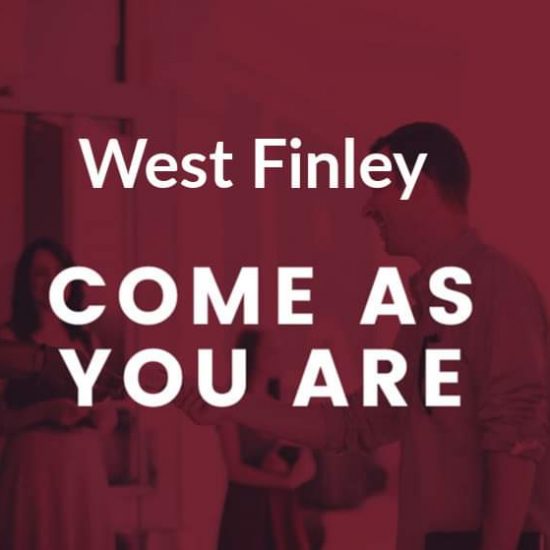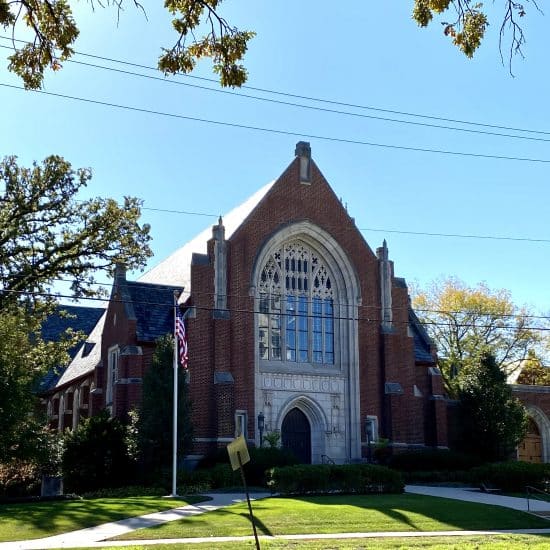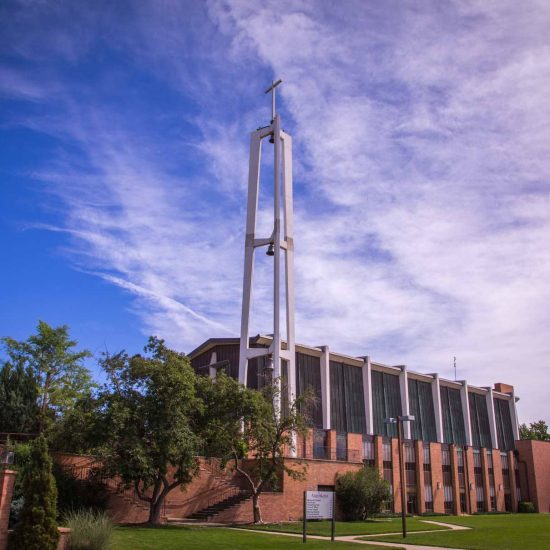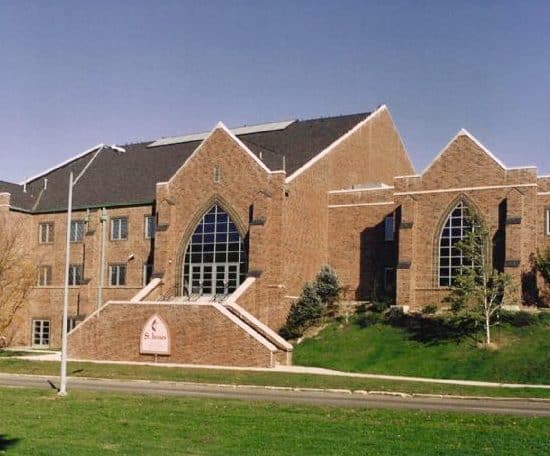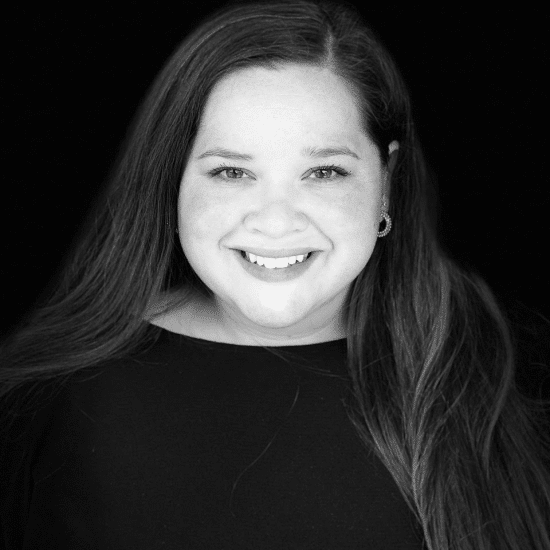
Pastors have broad job descriptions. They are preachers, teachers, counselors, administrators, organizers, and so much more. Many church members rarely interact with their pastors outside of Sunday morning worship, making it difficult to understand the dynamics of this role. “Behind the Pulpit” is a regular feature intended to pull back the curtain on the minister’s life and introduce our readers to how a diverse set of leaders go about shepherding their flocks.
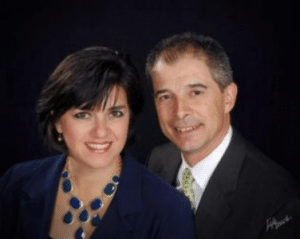
Russ Dean and Amy Jacks Dean
This installment features Russ Dean, co-pastor (with his wife Amy) of Park Road Baptist Church in Charlotte, NC. This interview was conducted through email and his responses have been lightly edited for clarity.
What didn’t you learn in seminary that you needed to know for church leadership?
So much of the day-to-day and business aspects of the church were not emphasized in our seminary education, as I wish they had been. So much of our study was on hermeneutics, homiletics, church history, all the academic stuff – which has been very useful – but so much of church life is beyond that. I would have benefitted greatly from some basic business and business administration/management courses.
What do you know as a pastor that you wish the typical layperson would better understand?
I wish most people understood the demands of ministry, the variety of demands on a pastor, and just the demand to our time. Occasionally I will have someone say something like, “So, like, what do you, like, do all day?” I wish they knew.
How has your personal understanding of God changed by serving the local church?
I do not know how much my experience echoes that of others but, as the pastor of a theologically progressive church with some well-educated, and equally opinionated members, I have been challenged constantly to think and rethink my theology. (They have challenged me at least as much as I have challenged them.) The “Sunday school answers” are never appropriate here and having church members to push me has greatly deepened my faith.
My understanding of God is probably pretty different than it was 21 years ago when my wife and I started at Park Road, a good bit less traditional (much of the “devotional” language of God, the traditional affirmations, no longer work for me), yet my conviction in the reality of a divine presence and the importance of that presence for our personal and corporate lives, is stronger than it has ever been.
How have your personal religious/devotional practices been shaped and altered by being the shepherd of a flock?
I would like to say that I have developed a stronger, more consistent devotional practice as a pastor… but that would be a lie! The honest truth is that the demands of church life – and the demand to read and study, prepare for sermons and other teaching opportunities – have occupied my time. I think about this a good bit: should I be reading more, for personal, devotional purposes? Spending more time in intentional praying? Reading the Bible more, not just in preparation for sermons? Perhaps the answer to all of these is “yes,” but I have not found/made that time, given the other demands in my work.
What does justice look like in your local context? How about love? How do you lead people towards both?
This question has gotten much more difficult since 2016. For many years, ours has been a “social justice church.” While our congregation is pretty diverse politically, there has been an understanding within our membership, regardless of where someone personally stands theologically or politically, that progressive theology and social justice are the fabric of this church. This has been true for most of this church’s 70-year history.
People began to hear our messages differently after Donald Trump was elected (despite being the same messages we had preached for 16 years). We have managed the tensions pretty well, but I am afraid, for the sake of holding the community together, that we have lost some of the movement toward being a more activist congregation in the last few years. We believe this has been the right priority: focusing our efforts in the last few years on love and on maintaining community. But I hope we will soon be able to move more in the direction of increasing specific action and advocating for issues that are central to a progressive theology.
What is the funniest or oddest thing that has ever happened to you in ministry (that you can share without breaking confidentiality)?
Friends who are pastors share this question frequently and say we are going to write a book: “You Can’t Make This (Stuff) Up!”
Two stories come to mind. We had a 100-year-old member who lived behind the church. One day her niece called: “Help! There’s a snake in the bathroom!” When I got there the centenarian was standing in the bathroom with her foot on the serpent. All I had to do was take it to the backyard!
Then there was the episode with the two cats that had died in a church member’s home. After his wife died, the husband fell off the wagon and succumbed to some pretty serious addiction, which led to his neglect of the family pets. (Description of said pets, when we found them, several weeks post-mortem, will be avoided here!) I’ll never forget that 98-degree August day, tie on, shovel in hand, preparing a grave in that back yard! (By the way, I just had a call from that church member telling me he was celebrating seven years of sobriety. Hurray!)
What has leadership through a pandemic required of you? How has your church experienced this public health crisis?
Flexibility. Patience. Hope. I think our congregation has been remarkable, exhibiting all those same traits they have needed of their pastors. We have trusted one another, been patient with one another, accepted the inevitability of doing things differently, trying new things, and giving up old things. It has been difficult (and it is getting old!) but we have weathered the storm about as well as possible, even growing in membership and in spiritual depth through it.
What gives you hope in the church today for what the church will be tomorrow?
Seeing how our church has fared these last 18 months gives me hope. No one has said, “we’ve never done it that way before!” There has been a consistent openness to newness, to trying things (even if they don’t work), to giving up some old traditions… We have enjoyed a good many guests with us, attending both remotely and in-person (after resuming in-person worship). Many of these have been young couples – which speaks to me of the importance of church in the lives of active, 21st-century urban families. I think the Church will be smaller in the future, less “central” to our cultural life, but that concentration may give us a chance to be more of what the Church was called to be from the beginning. That is my hope.

